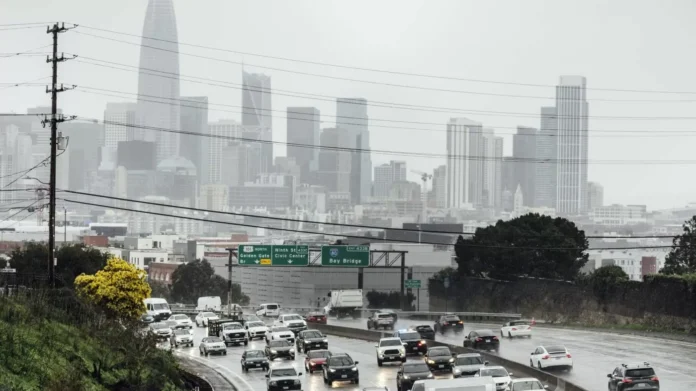In a major setback for the Biden administration’s climate agenda, a federal court has struck down a rule that would have required states and cities to set targets for reducing transportation-related emissions. The ruling, made by Judge James Hendrix, a former President Trump appointee, came in response to a lawsuit filed by Republican-led states challenging the rule’s legality.
The Biden administration had introduced the rule as part of its efforts to combat climate change and reduce greenhouse gas emissions. Under the rule, states and cities would have been required to set specific targets for reducing emissions from transportation, which is one of the biggest contributors to climate change.
However, Judge Hendrix agreed with the states’ argument that the Biden administration did not have the authority to impose such a requirement on them. In his ruling, he stated that the Environmental Protection Agency (EPA), which had issued the rule, did not have the legal authority to regulate emissions from transportation. He also noted that the rule would have imposed significant financial burdens on the states and cities, without providing any clear benefits.
The decision has been hailed as a victory by the Republican-led states, who have been at odds with the Biden administration’s climate policies. They argued that the rule was an overreach of federal authority and would have infringed on their rights to regulate their own transportation systems.
The ruling has also been met with disappointment and frustration by environmental groups and supporters of the Biden administration’s climate agenda. They see it as a setback in the fight against climate change and a missed opportunity to take meaningful action towards reducing emissions.
The transportation sector is responsible for a significant portion of the country’s greenhouse gas emissions, and experts agree that addressing this issue is crucial in the fight against climate change. The Biden administration had hoped that by setting targets for states and cities, they could push for more sustainable and environmentally friendly transportation policies and practices.
However, with the ruling striking down the rule, it is now unclear how the administration will move forward with its plans to reduce transportation emissions. Some experts believe that the administration may have to explore alternative avenues, such as offering incentives and funding to states and cities that voluntarily set their own targets.
The ruling also raises questions about the extent of the federal government’s authority in regulating emissions and addressing climate change. With the Biden administration’s ambitious climate goals, this ruling could have far-reaching implications for future climate policies and regulations.
Despite this setback, the Biden administration remains committed to its climate agenda and has vowed to continue its efforts to combat climate change. In a statement, the White House said that they were disappointed with the ruling but would explore all available options to address transportation emissions and achieve their climate goals.
The ruling also highlights the importance of the judiciary in shaping environmental policies and regulations. With the majority of federal judges appointed by former President Trump, who was known for his skepticism towards climate change, it is likely that more challenges to the Biden administration’s climate policies will arise in the future.
In conclusion, the federal court’s ruling striking down the Biden administration’s rule requiring states and cities to set climate targets for transportation is a significant setback for the administration’s climate agenda. It highlights the challenges and complexities of addressing climate change and the need for a collaborative effort between the federal government and states to achieve meaningful progress. As the fight against climate change continues, it is essential to find a balance between federal authority and state autonomy to effectively address this global crisis.

